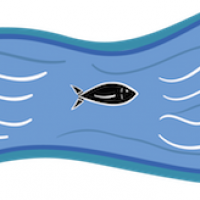
The disparity in the life expectancy of Indigenous and non-Indigenous peoples is a critical health and equity issue for communities, health organisations and governments around the world. The average life expectancy of Indigenous people here in Australia and in neighbouring Aotearoa New Zealand continues to lag behind non-Indigenous people by ten and seven years respectively. In Canada, the life expectancy for First Nations and Métis is on average five to six years less and for Inuit, the lag is ten to 15 years. As the International Working Group on Indigenous Affairs concludes, ‘Indigenous peoples remain on the margins of society: they are poorer, less educated, die at a younger age, are much more likely to commit suicide, and are generally in worse health than the rest of the population.’
Last month, the UN’s annual International Day of the World’s Indigenous Peoples sought to highlight the profound global disparities in both life expectancy and access to healthcare services. To mark this event, Australia’s National Health and Medical Research Council (NHMRC), the Canadian Institutes of Health Research (CIHR) and the Health Research Council of New Zealand (HRC) came together with Cochrane to publish the first in a series of Special Collections on Indigenous Health in the Cochrane Library. The collections focus on available Cochrane evidence in three areas with significant health implications for Indigenous populations, including:
> Diabetes
> Fetal alcohol spectrum disorders
‘The new special collections are the latest initiative to emerge from a Tripartite Agreement the NHMRC and our sister agencies in Canada and New Zealand established in 2002,’ explains Professor Davina Ghersi, Senior Principal Research Scientist with the NHMRC Research Translation Group. ‘The agreement underpins and reflects our ongoing collective commitment to work together to make a real difference to Indigenous health outcomes, to reduce life expectancy gaps and to support relevant health research and its effective translation in key priority areas.’
‘One of the primary ideas behind the collections is that we can build on what we already know and use these bodies of evidence as a starting point, or a basis to inform discussions and decision-making,’ says Professor Ghersi. ‘Well-conducted systematic reviews that address relevant questions have the potential to make significant improvements to health and health care - particularly if they’re used as the basis for clinical practice or public health guidelines and policy. While we know and acknowledge that there are evidence gaps and limitations evident in the collections, we think they can serve as a useful tool that people can draw on to inform their thinking, their conversations and their decisions.’
Two Cochrane editorials accompany the special collections and highlight the potential contributions they can make and the inherent challenges and limitations of systematic reviews in the context of Indigenous health. In Improving health outcomes for Indigenous peoples: what are the challenges?, Queensland’s first Indigenous doctor Associate Professor Noel Hayman joins New Zealand’s Associate Professor Papaarangi MJ Reid and Canada’s Dr Malcolm King to reflect on the issues. They highlight the mixed reputation research has among Indigenous communities, who have considered it ‘harmful, damaging, insensitive and exploitative’. On the other hand, they suggest that ‘systematic reviews of good-quality studies have provided the foundation for evidence-based guidelines for clinical practice and improved health outcomes for specific conditions, and therefore may be useful in eliminating Indigenous health disparities.’ The authors conclude that alternative research approaches are needed alongside systematic reviews, and that ‘keeping community interests and priorities central in research is paramount to addressing the factors that impact health in Indigenous communities.’
A second editorial from the Cochrane Equity Group explores related themes and looks at both the strengths and limitations of systematic reviews in the context of Indigenous health and research. The authors propose key steps to ensure systematic reviews are able to meet future challenges and conclude that ‘research conducted with and by Indigenous peoples is critical to ensure correct processes and community values are respected and to ensure questions are framed and prioritised appropriately.’
‘The Cochrane editorials really set out both the benefits and challenges that come from pulling a special collection like this together,’ Professor Ghersi says. ‘We can use the results to inform, to illuminate gaps in knowledge and to identify questions that require new research and approaches to answer. Ultimately we hope the collections will provide a high-quality source of food for thought for producers and users of health and medical research, which we can build on into the future.’
